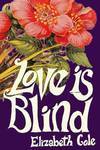Size Surprise!: Digital Publishing and Ereaders Make Story Size Meaningless by Elizabeth Cole
Today’s guest blog post by romance author Elizabeth Cole takes a look at how digital publishing may change the length of our books. Read on to learn what you need to know before you write that next novel!
 Size Surprise!: Digital Publishing and Ereaders Make Story Size Meaningless by Elizabeth Cole.
Size Surprise!: Digital Publishing and Ereaders Make Story Size Meaningless by Elizabeth Cole.
There has been a lot of discussion about how digital publishing is changing the book industry. From my research on the interwebz, it’s either going to save us all or drown the world in fire…flip a coin! But today, I want to talk about one very simple thing that digital publishing (and especially the invention of ereaders) has already changed for writers: size doesn’t really matter any more.
I’ve been writing for a long time, although it’s only in the last few years that I got serious about writing romance professionally. I began to consider what I needed to do to create a book that would sell. Since I first assumed that I would find an agent or perhaps submit directly to a publisher, I took the obvious step of checking out the submission guidelines for some of the better-known publishers (such as Harlequin). What I found was interesting. Nearly all the publishers had very strict requirements for word count. Each category of romance had a limited range of “acceptable” length stories, usually from 60,000 to 100,000 words for a novel (and don’t even bother writing anything shorter, unless you want to enter the occasional contest).
That approach was understandable, because these publishers were all very concerned about printing costs. To make money, you have to know ahead of time how much paper and ink you’ll be using to make each book. Other publishers do this too (especially for genre titles and series). Think of a bakery. Recipes are followed to create a reliable product every time. It lets the maker know how much time and money each item is worth, and it lets the customer know exactly what she will get. Standardization just makes business easier.
Readers picking up a print book also have certain expectations, ingrained after decades of subtle marketing that suggests size=quality. However, going by physical book size does not guarantee a good read. Haven’t you sometimes plodded through a book and wondered why some of those scenes were there? Why the story felt…padded? Or have you been frustrated when the ending of a book was rushed? When certain characters zipped in and out like they were late for another story?
The physicality of print books has a lot of benefits, but ebooks have a significant advantage in terms of unhooking story size from content. Unlike a print book, there’s less indication of how “big” a book is. Page count doesn’t matter. The same book might be 300 pages on a Kindle, or 6000 on an iPhone screen. An arbitrary word count doesn’t mean anything for digital publishing. And that frees writers to create stories that are exactly as long (or as short) as they need to be.
Combined with the ability to publish independently, this development means that authors can write stories of any length (and price them accordingly). Last year, I published a full length novel at around $3, and a much shorter novella at $1. My chances of getting that novella published through traditional channels was virtually nonexistent. But readers buying the digital copy didn’t care at all; in fact, it’s by far my best selling title! And I love the fact that I can set the price to what I think is fair.
As the shift toward digital continues, we’ll see a trend toward dramatically different story lengths. And we’ll also see terms like “short short”, novella, and novelette eventually become obsolete. People will grow used to the idea of buying a story, rather than a book, and the old labels are going to get quaint real quick.
Another related trend (which you might have noticed, dear reader) is that people have less time to read now. That means shorter stories will become even more popular. What does that mean for writers planning to go digital? It means that you can focus on telling the story you want to tell. You aren’t dependent on an outside gatekeeper telling you that you need to cut out 18,000 words and some important subplot in order to hit the page limit. Yay! But it also means that every word should have a reason to be there. Bloat won’t be forgiven.
I think that 2013 will see more and more writers willing to experiment with different structures and lengths for their work. The old rules no longer apply. Readers will continue to exercise more power too, as they make their preferences known through their buying habits and feedback. It will be a year of change and hopefully a bit of chaos. I’m looking forward to it. You?
 About the Author. Elizabeth Cole is a romance author who lives in an old house in an old city famous for liberty and cheese steaks, though not always in that order. Her latest story is a Regency romance titled Love is Blind, published in January 2013. You can learn more about it by visiting SkySpark Books. Elizabeth is on Goodreads, Twitter, and Facebook.
About the Author. Elizabeth Cole is a romance author who lives in an old house in an old city famous for liberty and cheese steaks, though not always in that order. Her latest story is a Regency romance titled Love is Blind, published in January 2013. You can learn more about it by visiting SkySpark Books. Elizabeth is on Goodreads, Twitter, and Facebook.








